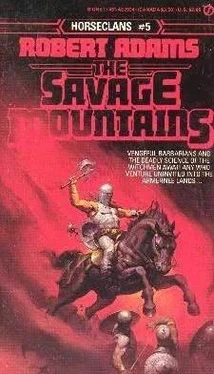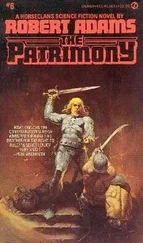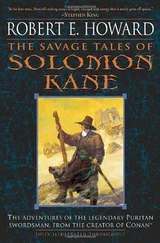“Vaskos, your Uncle Drehkos led the heroic defense of our camp that morning, unarmored. His few score rebels fought and held, briefly, two or three thousand Ahrmehnee, and almost all of that scratch force took their death wounds, including your uncle, who was run through the body with a wolfspear.”
“Good riddance,” Vaskos snarled, “to bad rubbish!
A restrained awe entered the younger officer’s tone. “But, Vaskos, the Lord Drehkos did not die! He pulled out the spear and by the next morning was sitting his horse beside the High Lady on the march. And she has kept him at her side since.”
Vaskos’ cup clattered onto the hearth and rolled, hissing and unheeded, into the fire. His widening eyes starting from his suddenly pallid face, he croaked, “Gaib … man, do you know what you’re implying?”
Gaib nodded. “No implication, that, old friend. The guardsmen say that the High Lord and the High Lady have administered every test and both now are satisfied that the Lord Drehkos, your esteemed relative, is of the Undying.”
“And I say, hogwash!” shouted Vaskos. “Man, my uncle is two years younger than my father and looks a good ten years older. My father, and many another in Morguhn, have known the man all his misspent life. There’s just no way you could possibly have heard the truth.”
Gaib flavored his reply with a humorless smile. “I thank you for not putting the lie into my mouth, at least But, Vaskos, I talked with guardsmen who assisted in the tests, some of them, anyway. With your uncle’s free consent, dirk blades were thrust into his body rendering fatal wounds, and still he lived. The Lord Milo and the Lady Aldora both are satisfied, why should you not be?”
With the first, green shoots of spring, the High Lord led the last of his regiments down from the western mountains, leaving Fort Kohg—as the castra was now called in honor of the nahkhahrah—manned by a mixed force of Confederation volunteers and native Ahrmehnee warriors, all under the command of Senior Strahteegos Hahfos Djohnz, who now bore the additional title of Lord Warden of the Ahrmehnee Marches, his actions accountable to none save the nahkhahrah and Milo.
At the High Lord’s side rode the nahkhaharah, well pleased with what he had, and would, accomplish for his people. Also, he was pleased that the Lord Milo had chosen Hahfos to be deputy. He felt his people would come to truly love the wise and competent but quiet and unassuming officer, and now that Hahfos was safely wed, by Ahrmehnee rites, to a girl of the Bahrohnyuhn Tribe, he was more or less Ahrmehnee himself. And, the old man mused on, if the Lady did not choose to grant children to him and his own new wife, there could be no complaint from any tribe were he to name as his successor Lord Hahfos’ firstborn son.
While Drehkos Daiviz, still a little unbelieving that he was truly Undying, listened, Aldora was patiently explaining to the Lady Zehpoor Taishyuhn, new wife of the nahkhahrah, the precise stations of her and her husband.
“Of the First Rank, there be but three—though there will be four as soon as we reach the capital and dear Drehkos is confirmed a High Lord. Of the Second Rank are such as foreign kings, princes, kahleefahee, and the like. The Third Rank includes such foreign titles as grand duke, or archduke, both of which are the same as our own ahrkeethoheeks; senior strahteegoee hold this rank as long as they remain in the army, as do certain high officials of the Confederation.
“Since the High Lord has decided that your husband will be ahrkeethoheeks of the Ahrmehnee, he and you will be of the Third Rank, officially. But, actually, you and Kogh are much more valuable to us than any score of ahrkeethoheeksee.”
Zehpoor looked puzzled. “But, my lady, all of the Ahrmehnee Stahn cannot raise ten thousand warriors, so I cannot understand—”
“Milo and Mara and I, Zehpoor, are very interested in the many and widely diverse powers of the mind. We have devoted many years of study to them and have even established an academy of sorts to see if people lacking them can be taught to … to … well, to control their minds sufficiently to unleash powers they did not know they had. Milo can explain the aims of the Academy far better than can I.”
At a wider place in the trail, Drehkos reined aside and allowed the column to proceed past him until he spied his brother, Komees Hari, at the head of his mixed force of Freefighters, nobles and Moon Maidens. Then he toed his horse out to ride at his brother’s side.
Some week or so after the Night of Fire, Hari and young Sir Geros had led three hundred riders to the castra, having missed the nahkhahrah’s village by dint of faulty maps. With them had come two Ahrmehnee women, to whom Captain Pawl Raikuh owed his life. Many of the column were wounded when they arrived and all were near starvation. Nonetheless, the old komees had lost no time in reporting to the High Lord. And he had been too exhausted even to protest the presence of his despised brother in the High Lord’s pavilion.
He had detailed the highlights of the forced march, the finding of Raikuh’s butchered force, the approach to and advance onto the plateau. He told of the ruined village and its cruelly massacred inhabitants, then of the witnessed stand of the Ahrmehnee warriors and Moon Maidens against the thousands of barbarians and their monstrous leader.
At that point, the nahkhahrah had interrupted. “Your pardon, sir. Did you hear this creature addressed, by chance? If so, what was he called?”
Hari shrugged tiredly. “No, I heard nothing addressed to the giant. But some of the Maidens who rode in with me have mentioned that the Muhkohee’s leader was one Buhkuh.”
The nahkhahrah nodded. “Thank you, sir.” Then he turned to Milo. “I have never heard of one of that name, though it is a common name amongst the Muhkohee. But this leader your officer describes can be only one of the terrible monsters of whom I told you, the Haidehn Tribe. Since most of them are powerful sorcerers, they are the richest of all the Muhkohee, but they are also cannibals, and no more evil tribe has ever stalked Our Lady’s earth!”
“Well, sorcerer or not, he soon found his Northorse couldn’t outrun Bili’s Mahvros,” said Hari, grimly. “Nor did either magic or armor keep that great axe out of his flesh. Bili smote him out of the saddle and our squadron rode over his body.”
The nahkhahrah grunted his approval. Milo asked, “Bili routed near three thousand men with one under-strength squadron, then?”
Hari’s grin was fierce with pride, though pain was in his eyes. “Aye, my lord, Duke Bili sent the Freefighter bow-masters, under command of Count Tares Duhnbahr of Baikuh, around to the top of the cliff against which the warriors and Maidens were standing at bay. Then, when the barbarian bastards already were reeling under the arrow rain, he led the rest of the squadron athump into their right flank, while my wing took them in the rear. And these little ponies just aren’t built to take the charge of a good warhorse, my lord. Even so, it was a near thing once the momentum of the charge was lost and the squadron was fragmented.
“But then Duke Bili rallied most of us, reformed, reinforced by Count Taros’ bowmasters along with several troops’ worth of Maidens and Ahrmehnee, and hit the enemy in the left flank. That second charge did it, my lord—they broke and fled southwest, down the slope of that plateau, with us in hot pursuit.
“And we ran them, my lord. What a chase that were! Kindred and Freefighters and cats, Moon Maidens and Soormehlyuhn warriors, we chivvied and harried the bastards clear to the end of the bloody plateau. I never got the chance to ride back over the route and the battlefield, but I trow not five hundred got away. And we might’ve got more had Bili not stopped the pursuit when he did.
Читать дальше












